Why does one go to the cinema? For some, it is to escape the reality of life. For Anika Tokarchuk, cinema is the reality of her life. For the past six years, her existence has revolved around the shifting images, sounds, and characters on the screen. Recently, the Canadian filmmaker who is now living in Taipei debuted her documentary, Life as Cinema, on Public Television Service (PTS,
What started off in 1998 as a documentary on the making of The Cup by Dzongsar Khyentse Rinpoche led Tokarchuk on a journey from Canada through Europe, India and finally to Taiwan. Her project has turned into a three-part series, drawing on support from respected members of the Taiwanese film industry and various buddhist organizations.
"This documentary started off as Rinpoche's idea," Tokarchuk said. "Of course, I really was excited about it, but I had no idea how incredible and how wild the adventure would be. I've lived through this whole amazing experience while making this film, and by doing so I think it has molded the character of the film."
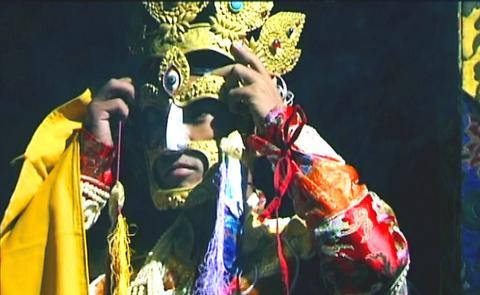
PHOTO COURTESY OF ANIKA TOKARCHUK,IMAGE LANTERN PICTURES LTD
At first, the road was smooth. With a conditional approval for funding through the Canadian film and television industry, Tokarchuk left to begin shooting in India. Six months later, however, on the same day she received permission to interview the Dalai Lama, the offer for funding was unexpectedly withdrawn. Having explored all avenues for financial support before leaving Canada, Tokarchuk felt returning was not an option. To make things worse, she had only US$200 remaining and no return flight.
"It really felt like a dead end to go back. And plus I had my film 80 percent made, it's kind of like if you are seven months pregnant you can't have an abortion, you have to go through with it," she said.
Contemplating her next move, Tokarchuk remained in Dharamshala, where she met a number of individuals teaching English in north-east Asia. Taiwan, a prosperous English teaching market and a country with a growing relationship with Tibet -- both in funding and number of dharma students -- seemed to offer the best environment for Anika's film.
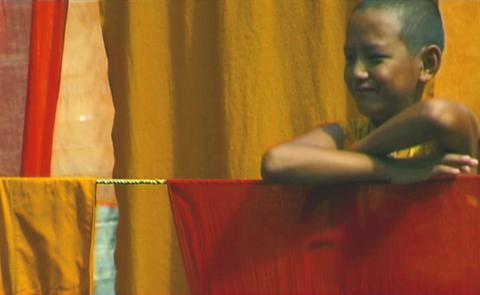
PHOTO COURTESY OF ANIKA TOKARCHUK,IMAGE LANTERN PICTURES LTD
A coincidental meeting with the well-known Taiwanese director, Stan Lai (
Two years went by and Tokarchuk took up residence in Taiwan as an English teacher. After earning enough money to furbish her own home film studio, she was ready to begin the arduous job of editing. An increasingly visible future slowly emerged through a web of connections, one of which is Hung Hung (
Associate director of Life as Cinema, Hung encouraged
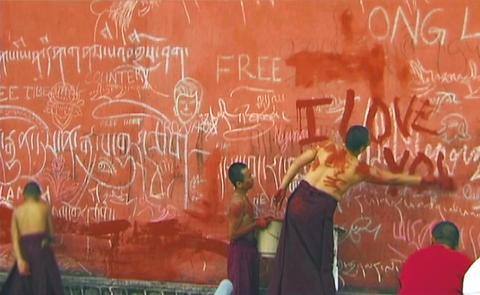
PHOTO COURTESY OF ANIKA TOKARCHUK,IMAGE LANTERN PICTURES LTD
Tokarchuk to "go wild" with the 200-hours of footage. "It is much more than a film to her," said Hung, "It is a journey of discovery and the Buddhist dharma that she was practicing through the making of this film. She needed to continue, to finish the project."
Hung said that, to some people, the film might be too experimental in its approach. "Some films need to be seen twice to be understood," he said, implying it's not easy to digest a real meal after being fed junk food for so long.
Sylvia Feng (
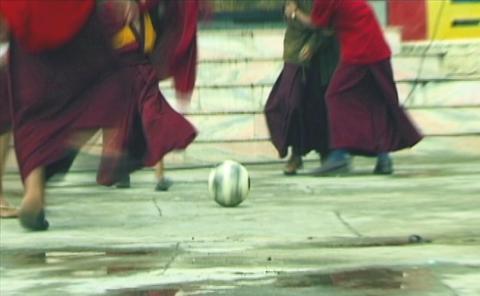
PHOTO COURTESY OF ANIKA TOKARCHUK,IMAGE LANTERN PICTURES LTD
One scene in the documentary covers a discussion held at the famed Wisteria Tea House in Taipei. Feng said, "No Taiwanese photographer could capture the aura of Wisteria Tea House [a popular meeting place for"intellectuals'] better than Anika [Tokarchuk] ... her visualization of the intellectual culture in Taipei may spark enlightenment for Taiwanese directors."
The appreciation of Tokarchuk's film, however, goes beyond just artistic or intellectual circles. The Hao Ran Foundation (
Another supporter, Su-Jei Own (
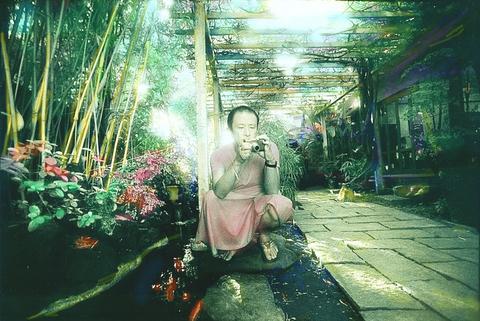
PHOTO COURTESY OF ANIKA TOKARCHUK, IMAGE LANTERN PICTURES LTD
Tokarchuk's experience of making the film changed her perceptions, as she thought they would. "The experience that I've gone through has been my version of living through the themes in Life as Cinema. It really has been this experience of living in this amazing reality."

The government released figures for October showing that, year on year, exports increased 49 percent to a record US$61.8 billion for the month. The dramatic increases were partly due to fall being the high season, but largely due to the AI boom driving demand for exports, which many investors fear is rapidly turning into a massive bubble. An editorial in this newspaper last month warned that the government should be ready in case the boom turns to bust. In previous boom-bust cycles, from shoes and textiles, through computer parts and accessories, to tools, bicycles and sporting goods, Taiwan has survived in
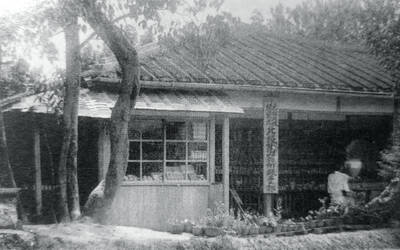
Nov. 30 to Dec. 6 It is said that those who refused to vacate Kipatauw’s upper settlement were knocked unconscious by Japanese agents and dragged to fingerprint the deeds. The Japanese coveted the site’s valuable white clay for Beitou District’s (北投) growing ceramics industry, and they were determined to acquire it by any means. The Indigenous Ketagalan settlement of Kipatauw had withstood centuries of external pressures and cultural erosion. Despite gradually losing much of their territory to Han settlers, they remained distinct into the early 20th century. By 1895, three communities persisted: the upper settlement near

Spicy, scarlet red Sichuan food isn’t normally my suggestion for a first date. But hear me out, if you can both handle a three-chili rating, this spot could be the one. The vibe is intimate and in-the-know cool, the food is fantastic and will spur many a conversation, the cocktail list is wacky and fun — and they do offer free mouthwash in the restroom. Old Seat (老位) is tucked down an unassuming alleyway in the bustling Zhongxiao Dunhua (忠孝敦化) area, warm red lighting and fairy lights leading the way. It’s elegant, overtly hipster and even our table by the
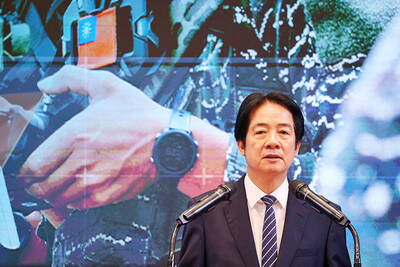
This week, President William Lai (賴清德) and his administration launched a major publicity blitz to drum up support for a proposed NT$1.25 trillion (US$40 billion) special defense budget. This was well-planned and executed, and politically astute, but it is still far from becoming a reality: He needs to convince the opposition-controlled legislature to pass it. The chance that the Chinese Nationalist Party (KMT) and Taiwan People’s Party (TPP) legislative caucuses vote to approve everything that the administration wants is low, but Lai and his team have gone to great lengths to optimize the chances of getting some, or even most